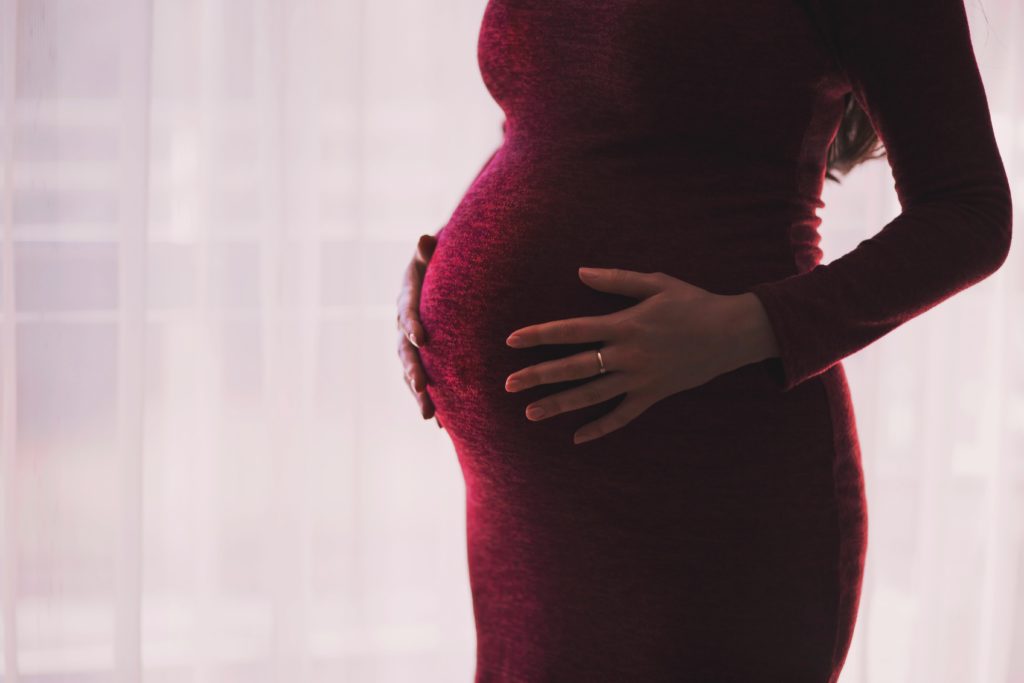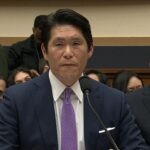
Published December 14, 2022
Congress has the chance to enact groundbreaking legislation, the Pregnant Workers Fairness Act (PWFA), that would close a dangerous gap in protections for pregnant workers.
Without this bill, employers can discriminate against pregnant workers who need common-sense help, denying them exemptions from heavy lifting, as well as bathroom or water breaks – sometimes at the cost of their jobs and health. The PWFA would solve this problem by requiring employers to make reasonable accommodations for pregnant workers that do not impose undue hardship on employers.
With support from both the United States Conference of Catholic Bishops (USCCB) and the American Civil Liberties Union, the bipartisan PWFA is a legislative unicorn – a bill that Americans who disagree about abortion, like the four of us, can rally behind.
And we’re not alone. Bipartisan support on the issue reflects the widely shared belief that pregnant workers deserve the accommodations they need. The bill has the votes to pass, and it may be now or never. But the bill has stalled in the Senate due to disagreements about how it relates to abortion, just as both chambers are set to recess in the coming week. It’s not too late, however, for Congress to find a way through this impasse and help pregnant workers.
Historically, it was commonplace for employers to fire pregnant women. “A married woman’s sphere is in the home, if she has a family,” an editorial explained in 1911.Employers assumed that any pregnant worker would (and should) leave the workforce upon becoming a parent. And assumptions about work during and after pregnancy gave workers a zero-sum choice: give up a badly-needed job or finda way to end a pregnancy.
That is neither pro-life nor pro-choice. It is fundamentally unjust, and yet, the Supreme Court held in the 1970s that pregnancy discrimination was constitutional and did not violate federal civil rights law.
But that was intolerable to the coalition of pro-choice and pro-life advocates who fought for the Pregnancy Discrimination Act (PDA). Abortion-rights supporters stressed that real reproductive choice involves not just the right not to have a child but also the ability to bear and raise children without sacrificing the means to make a living. Activists opposed to abortion recognized that supporting pregnant workers would mean fewer abortions – and stronger families.
The coalition sought through the PDA to reduce economic pressures that might lead to an abortion. Thanks to this unlikely alliance, Congress passed the PDA in 1978, reasoning that “the assumption that women will become pregnant and leave the labor market is at the core of the sex stereotyping.”
But in the years since, it’s become clear that the PDA is broken. As courts interpret the law today, it does not require employers to accommodate anyone – it only demands that employers extend the same protections to pregnant workers that are offered to employees similar in their ability to work. That means employers can avoid problems simply by denying everyone protections.
Worse, judges commonly shut down claims because an employee can’t find a precise enough “comparator” – an employee similar in ability or inability to work. As the House observed: “Forcing pregnant workers to identify a comparator creates an oftentimes insurmountable hurdle.”
The results for pregnant workers have been devastating. As the New York Times recently documented, pregnancy discrimination harms a range of workers across the pay scale, from Walmart to Wall Street. Sometimes, just asking for a simple accommodation triggers a reprisal. A study published in 2011 found that a quarter of women were fired or quit when they bore a child.
And the problem hasn’t stopped. The chain Circle K just settled with the Equal Employment Opportunity Commission for $8 million, following an investigation that revealed multiple workers were fired or forced to take unpaid leave because they were pregnant.
Other lawsuits tell a similar story. A restaurant in Louisiana fired a worker the same day it hired her after learning she was pregnant. A human resources employee was fired the same day she learned that she required accommodations for a high-risk pregnancy. Stories of workers being fired or mistreated due to pregnancy are everywhere on Twitter, Reddit and TikTok, and that’s no surprise. Research suggests that a quarter million pregnant workers are denied accommodations each year – and nearly 40% don’t even feel confident enough to ask their employers for accommodations in the first place.
Even when workers denied accommodations are not fired, they must endure serious potential health risks. Failure to accommodate can drastically increase the chance of miscarriage, whether through forcing pregnant women to perform demanding manual labor or exposing them to toxic chemicals. Even so, employers win 66% of the pregnancy discrimination cases filed against them – and some studies estimate that only 1% of workers facing discrimination ever file a claim.
The PWFA would help to solve this problem by requiring employers to make reasonable accommodations to pregnant workers. But the bipartisan alliance in support of the bill is now threatened by disagreements concerning the bill’s potential impact on abortion.
Nearly 50 years ago, the pro-life/pro-choice coalition in support of the PDA also had to work out a variety of disagreements that stood in the way of that law’s passage. But work out their differences they did.
We urge members of Congress on both sides of the aisle to come to an accord regarding these concerns before they recess for the holidays. Finding a way forward for the PWFA, at this time of pervasive political polarization, would not only be a vital gift to pregnant women and their families. It would also give us all a sliver of hope that Washington still works for the benefit of all American people.
Photo by freestocks on Unsplash
EPPC Fellow Erika Bachiochi is a legal scholar specializing in Equal Protection jurisprudence, feminist legal theory, Catholic social teaching, and sexual ethics. She is also a Senior Fellow at the Abigail Adams Institute in Cambridge, MA, where she founded and directs the Wollstonecraft Project. Her newest book, The Rights of Women: Reclaiming a Lost Vision, was published by Notre Dame University Press in 2021.












